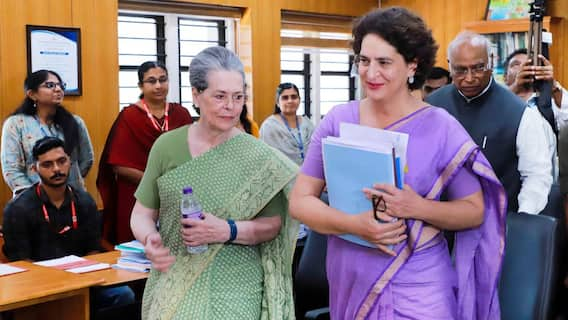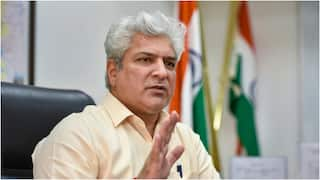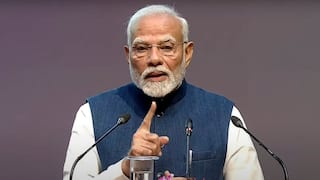Disinvestment Deals Should Be Free From Investigative Scanner: Indian Banker & Chartered Accountant, Naina Lal Kidwai To Kailashnath Adhikari, MD, Governance Now
Naina Lal Kidwai in a conversation with Kailashnath Adhikari, MD, Governance Now, during the webcast as part of the Visionary Talk series.

Indian banker and chartered accountant, Naina Lal Kidwai has said that the government needs to do to its disinvestment deals in a transparent and above-board manner and ensure that deals are free from the investigative scanner.
Giving her views on the private sector's response sectors response to government disinvestment, Kidwai said the deal has to be crafted in a way that makes sense, as not every deal will get bids from 2-3 bidders to show that it has gone to the highest bidder.
“Government follows a very regimented process. We have seen deals getting reopened for CBI and other inquiries. Disinvestment deals should be free from the investigative scanner. The government has to have the courage to transact and do deals with full transparency.”
She was in a conversation with Kailashnath Adhikari, MD, Governance Now, during the webcast as part of the Visionary Talk series held by the public policy and governance analysis platform.
The former group general manager and country head of HSBC India said that not all deals will easily have 2 or 3 bidders to transparently show that it has gone to the highest bidder.
“There will be bells and whistles around each deal….When you do M&A deals it is very hard to do cookie-cutter deals….and when you do it in an environment where you can come back 15 years later to revisit it and throw someone in jail ..its not going to help. We have to have courage when we do these deals. We have to do them in an above-board way and also ensure that those who sign those files get some protection from such revisiting’s otherwise these deals are going to go round in circles.”
With the LIC’s public issue expected to add fuel to the disinvestment program and on being asked if a behemoth like LIC should really go public, the business executive said with a huge market share despite the coming in of the private sector, LIC has maintained their share remarkably well. The public offering she said is the right way to go “… while the government will continue its ownership, it brings money into the kitty at a time when we need it the most. We have had extraordinary pandemic costs … we still need to invest ..we still need to commit to and contain fiscal deficit and the big plug figure is going to be the LIC IPO. While these deals are not easy in a very volatile equity market but the IPO will close a huge money gap that can be very well used” she said.
On structural reforms in the Indian banking system, she said she hoped the government would move forward on its announced policy on some public sector banks at least, into the private sector. Kidwai said having a large preponderance of ownership of banks in government hands is not required.
“Whether the government does that through fewer banks which is the right strategy or enable other banks to grow, move to ensure a much-distributed banking sector will be important. Right now the banking sector is under capacity for the growth the country must see and for that, we need larger and more banks and banks that fill all the spaces. Each of the financial institutions other than the banks are important” she said.
Kidwai said that India needs a far more robust capital market for debts and bonds so companies can move very rapidly from being banked by the banks through the capital markets. Though there is some move by the government to do so, a proper bond market will ensure that companies don’t rely only on the banking sector but move to bonds and capital markets. She added that longer tenure bonds up to 20 years will provide stability to companies and also take off pressure from the banking system.
“The financing services sector has to be looked at together in a way that takes the pressure off banks; give us more banks in the private sector as well as a robust banking system.”
Kidwai also said that IPO pricing should be more responsible and retail investors need more awareness and education on investing and have the right understanding of entry and exit strategy for the company.
DISCLAIMER: "This is a sponsored feature and provided by Governance Now."
IPL Auction 2025
Top Headlines
Trending News







































